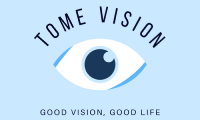Smart Glasses: The Future of Eyewear
In a world where technology continues to advance at an astonishing pace, it is no surprise that even our eyewear is getting a technological facelift. Smart glasses, once considered just a concept from science fiction, are quickly becoming a reality. These futuristic eyewear devices offer a wide range of features and benefits that have the potential to transform the way we see and interact with the world. In this article, we will explore the future of eyewear with smart glasses, discussing their potential uses and benefits.
Enhanced Vision and Augmented Reality
One of the key benefits of smart glasses is their ability to enhance our vision and provide us with a whole new level of augmented reality (AR) experiences. Unlike traditional glasses, these smart devices are equipped with advanced technology such as cameras and sensors, allowing them to capture and process visual information in real-time. This information can then be displayed directly in our field of view, creating a seamless fusion between the digital and physical world.
Imagine being able to see live translations of foreign languages as you read a menu in a foreign country, or having step-by-step navigation instructions overlayed onto the streets as you walk. These are just some of the possibilities that smart glasses can offer. By superimposing digital information onto the real world, smart glasses have the potential to revolutionize several industries, including tourism, healthcare, and education.
Improving Accessibility and Independence
For individuals with visual impairments, smart glasses have the potential to be a life-changing innovation. These devices can help visually impaired individuals navigate their surroundings more easily by providing real-time object recognition and audio cues. By converting visual information into audio, smart glasses can help visually impaired individuals identify objects, read signs, and even recognize faces.
In addition, smart glasses can also assist individuals with hearing impairments by providing real-time captioning and playback amplification. This can improve communication in various settings, such as classrooms and public gatherings, helping individuals with hearing impairments participate more fully in social interactions.
Furthermore, smart glasses can enhance the independence of individuals with disabilities by providing them with remote access to various services. For example, a person with mobility limitations can use smart glasses to control smart home devices, make phone calls, or even order groceries online, all without the need for physical interaction.
Bullet List:
– Real-time translations of foreign languages
– Step-by-step navigation instructions
– Object recognition and audio cues for visually impaired individuals
– Real-time captioning and playback amplification for hearing impaired individuals
– Remote access to services for individuals with disabilities
– Integration with smart home devices
Conclusion
Smart glasses have the potential to revolutionize the way we see and interact with the world. With their ability to enhance our vision and provide augmented reality experiences, they offer endless possibilities for various industries. Additionally, smart glasses can greatly improve the accessibility and independence of individuals with impairments, making them an invaluable tool for those with visual or hearing disabilities. As technology continues to advance, it is clear that smart glasses are paving the way for a future where eyewear is no longer just a fashion accessory but a powerful tool for enhancing our everyday lives.
